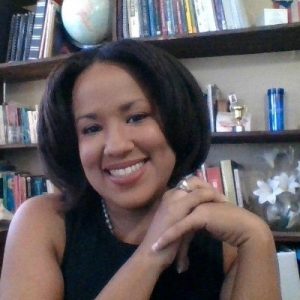Takeaway
When witnessing racism, we must support those affected to foster an environment of safety and respect.

Lifelong Learning in Clinical Excellence | May 10, 2022 | 2 min read
By Vivian Altiery De Jesus, MD, MBE, Johns Hopkins Medicine
Exhaustion and burnout are unfortunately common in the medical profession. Alarmingly, but not surprisingly, a study showed that students who are underrepresented in medicine (URIM) reported experiencing a higher level of exhaustion-related burnout. This can be even more complex since some individuals belong to intersections of multiple groups. For example, I’m a first generation Puerto Rican, black Hispanic, cis-gender woman, and I could go on.
Some of the added challenges faced in medical school and graduate medical training are well-being, professional identity formation (PIF), and increased risk of feeling isolated in the medical guild. Overall, physicians in training are at higher risk of depression and suicide. URIM physicians in training experience other challenges that contribute to burnout.
Burnout increases moral distress and moral injury, which in turn negatively contributes to professional identity formation. Hurricane María left its mark in 2017, when I was a third-year medical student. The sheer pressure of the natural disaster coupled with the stress of medical school made 2017 (for me) the highest moral injury exposure.
The working/learning environment is essential. Dr. Jennifer Adaeze Okwerekwu shared her experience as a fourth-year medical student where a patient referred to her as a “colored girl” and the attending did not address the situation. As a member of multiple minority groups in medicine, I had similar encounters with a few patients. When the encounter isn’t addressed, a sense of isolation occurs, since it feels like no one understands, it’s the norm, and nobody in the team cares. I noticed the difference when colleagues and mentors addressed the situation in real time with the patient and then debriefed the incident at the end of the encounter as a team. It not only cultivates an environment of respect, but it also helps the physician in training navigate their own feelings. Such support mitigates moral injury and distress and the three main feelings I felt as a medical student in encounters that were ignored/dismissed by the team.
But what can we do as a healthcare profession? These are some actions that would help to improve our profession, including:
1. Increase awareness of challenges regarding URIM in our profession.
2. Incorporate health humanities, bioethics, and professionalism lectures/conferences in the medical curriculum.
3. Engage with our own professional identity formation by reflecting on our identity as healthcare team members and our goals.
4. Work to increase diversity in the healthcare profession.
5. Foster cultural humility within teams.
6. Senior clinicians and mentors must be especially proactive regarding the above.
This piece expresses the views solely of the author. It does not necessarily represent the views of any organization, including Johns Hopkins Medicine.

